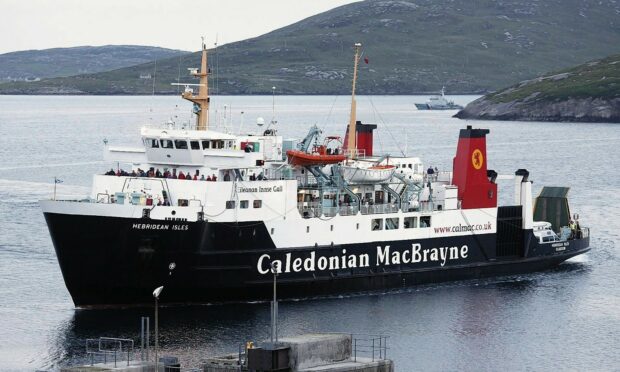Politicians have called on the Scottish Government and CalMac to conduct a “lessons learnt” exercise around this year’s Stornoway and Barra dry dock replacement – to ensure more successful planning and deployment in future.
The local authority’s transport chairman Uisdean Robertson, said the annual dry dock programme for major CalMac Ferries was “again having a profoundly negative impact” on communities across the Western Isles.
Labour Highland MSP Rhoda Grant added: “I fully support this call for a review.
“Cal Mac is a life-line service to the islands and should be reliable and fully meet the needs of island communities.
“Instead it is crippled by service cuts and poor transport decisions that leave communities scrambling to patch up the gaps and this applies across all aspects of life.”
Conservative MSP Donald Cameron said: “These problems are rooted in the long-term failure of the SNP Government to deliver the right level of ferry capacity for the Western Isles.
“The Comhairle is quite right to insist on a review so that we avoid a repeat of the current difficulties.
“But we need to go much further and establish a plan that will deliver a service that island communities can rely on, day in day out.”
Councillor Robertson added: “Perhaps if there was more island input into the planning and decision making, there would be a better understanding of how the lack of proper planning and deployment adversely affects life in these islands.
“CalMac has deployed MV Isle of Lewis and MV Hebridean Isles to the Stornoway route with the latter designated for freight services.
“Despite this being the route with the highest freight volume on the network, MV Hebridean Isles’ freight carrying capacity is heavily restricted in weight terms meaning it can only carry a partially loaded vehicle deck.”
“Despite the inclement weather last week, it is the case that the freight provision remains inadequate. This is having a significant impact on businesses, including shops, fish farms, builders and allied trades as well as the general public.
“Shortages and delays which have real tangible financial impacts on our local economy.
“We are committed to continuing to work with the Scottish Government and CalMac to ensure more successful planning and deployment of future ferry services for island communities.”
CalMac’s director of asset management Julie Philpott said: “Trying to ensure that every vessel gets the proper levels of maintenance and upgrades, while keeping lifeline ferry services running is an extremely complex operation. Not all vessels are suitable for every route and harbour, meaning the matrix we need to design to ensure service continuity is long in the planning.
“We try where we can, within the resources available to us, to provide as seamless a service as possible during this period, matching suitable vessels to cover routes. But getting every vessel in for maintenance requires us to do a certain amount of manoeuvring.
“We try and keep inconvenience to a minimum, and hope the travelling public can understand why we have to make the vessel changes that we do at this time of year.”
Transport Scotland has been contacted for comment.
